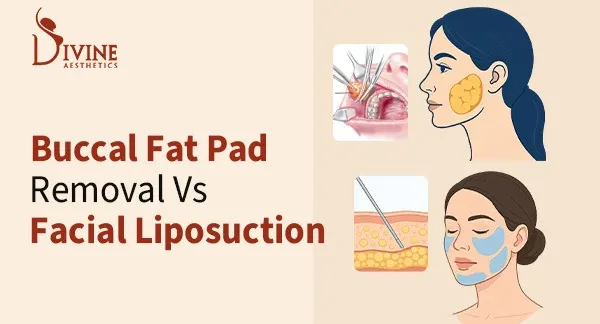Cosmetic Postoperative Pain Control Tips
While cosmetic surgery can do wonders on your physical features and increase your confidence, it is all a medical procedure that requires adequate post-operative care as well. Postoperative pain is probably the most common and biggest issue for most patients. Discomfort is absolutely normal but there are several proven methods for reducing pain and having a smooth recovery process.
This blog talks about plastic surgery pain control tips, plastic surgery side effects, and the million-dollar question—is plastic surgery safe?
Is Plastic Surgery Safe?
Now, going to pain management, it must first to be said, is plastic surgery safe? Many factors determine whether any cosmetic procedure is safe, including the expertise of the surgeon, the nature of the surgery, and the health status of the patient.
Cosmetic procedures are relatively safe in the hands of an experienced and properly trained plastic surgeon. But, of course, there are risks with any type of surgery including infection, swelling, bruising, and pain. Having care afterwards is a huge part of minimizing complications and healing properly.
Let us now discuss how you can address surgical pain management / pain control tips.
10 Tips for Controlling Plastic Surgery Pain
To save the pain of cosmetic surgery after surgery is to ensure that you can recover well.
1 . Follow Your Surgeon’s Instructions
Your plastic surgeon will provide specific post-operative guidelines, including medication schedules, activity restrictions, and wound care instructions. Following these recommendations carefully will help minimize pain and reduce the risk of complications.
2. Take Pain Medication as Prescribed
Most cosmetic procedures come with some degree of discomfort, but prescription painkillers or over-the-counter medications can help manage it. Your surgeon may prescribe pain relievers such as ibuprofen, acetaminophen, or stronger medications if necessary.
Always take medication as directed, and avoid self-medicating with additional drugs, as this may lead to unwanted side effects.
3. Use Cold Compresses to Reduce Swelling
Swelling and inflammation contribute significantly to post-surgical pain. Applying a cold compress to the treated area for short periods can help minimize swelling and numb pain. Be sure to wrap ice packs in a cloth to prevent direct contact with the skin, which could cause irritation.
4. Stay Hydrated and Maintain a Healthy Diet
Proper hydration and nutrition play a key role in the healing process. Drinking plenty of water helps flush out toxins, while a balanced diet rich in vitamins, protein, and fiber aids tissue repair and prevents constipation, which can be a side effect of pain medication.
5. Rest and Avoid Strenuous Activities
Your body needs time to heal after a cosmetic procedure. Resting properly and avoiding strenuous physical activities can prevent unnecessary strain on the surgical area and reduce pain.
While light walking is encouraged to improve circulation, avoid lifting heavy objects, bending, or engaging in high-impact exercises until your surgeon clears you.
6. Use Compression Garments (If Recommended)
Certain cosmetic procedures, such as liposuction and tummy tucks, require the use of compression garments to support healing. These garments help reduce swelling, provide comfort, and promote proper contouring of the treated area.
Make sure to wear them as instructed to aid in pain relief and recovery.
7. Sleep in the Right Position
Your sleeping position can affect your recovery process. Depending on the procedure, you may need to sleep on your back with your head elevated to reduce swelling and discomfort. Avoid sleeping on your stomach or sides if it puts pressure on the surgical site.
8. Gentle Massage and Lymphatic Drainage
For procedures like liposuction or facelifts, gentle massages and lymphatic drainage techniques (as recommended by your surgeon) can help reduce swelling, improve circulation, and alleviate pain. Always consult your doctor before trying any massage techniques.
9. Stay Ahead of Pain
Do not wait until the pain becomes severe before taking action. Taking pain medication at regular intervals (as prescribed) and following post-surgical care instructions will help keep pain levels manageable.
10. Watch for Signs of Complications
While mild discomfort is normal, excessive pain, persistent swelling, or signs of infection (such as redness, warmth, or discharge) should be reported to your doctor immediately. Addressing potential complications early can prevent more serious issues.
Cosmetic Surgery Side Effects
While pain is a common post-surgical experience, other cosmetic surgery side effects may also occur, including:
- Bruising and Swelling: Most procedures result in some level of bruising and swelling, which gradually subsides over time.
- Numbness or Tingling: Temporary nerve sensitivity changes may occur but usually resolve as healing progresses.
- Scarring: While plastic surgeons aim to minimize scarring, some degree of scarring is inevitable. Proper wound care and scar treatment options can help reduce their visibility.
- Fatigue: Your body expends energy healing, so feeling tired for a few days or weeks post-surgery is normal.
Being aware of these side effects can help you prepare mentally and physically for the recovery period.
Get Cosmetic Surgery at Divine Cosmetic Surgery
If you are considering a cosmetic procedure, Divine Cosmetic Surgery is a trusted name in the field. With a team of highly skilled surgeons, state-of-the-art facilities, and a patient-first approach, Divine Cosmetic Surgery ensures safe, effective, and aesthetically pleasing results.
Whether you are interested in liposuction, rhinoplasty, breast augmentation, or other cosmetic enhancements, Divine Cosmetic Surgery prioritizes your safety and comfort throughout the entire process.
Conclusion
Pain management is a crucial aspect of post-surgical recovery. By following these plastic surgery pain control tips, you can significantly reduce discomfort and promote a smoother healing process.
While cosmetic and plastic surgery side effects are common, they can be managed effectively with proper care and guidance from your surgeon. And if you are wondering, is plastic surgery safe?—the answer lies in choosing the right surgeon and following post-operative care diligently.
For those looking for expert cosmetic surgery services, Divine Cosmetic Surgery offers top-tier procedures with a focus on safety, precision, and patient satisfaction.
Planning a cosmetic procedure? Consult with a qualified surgeon today and take the first step toward achieving your aesthetic goals!











